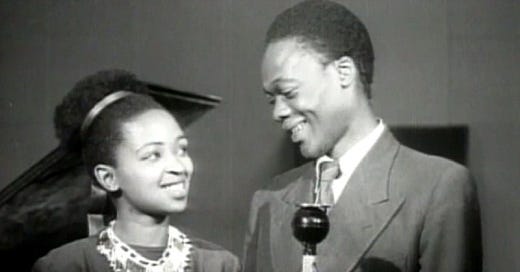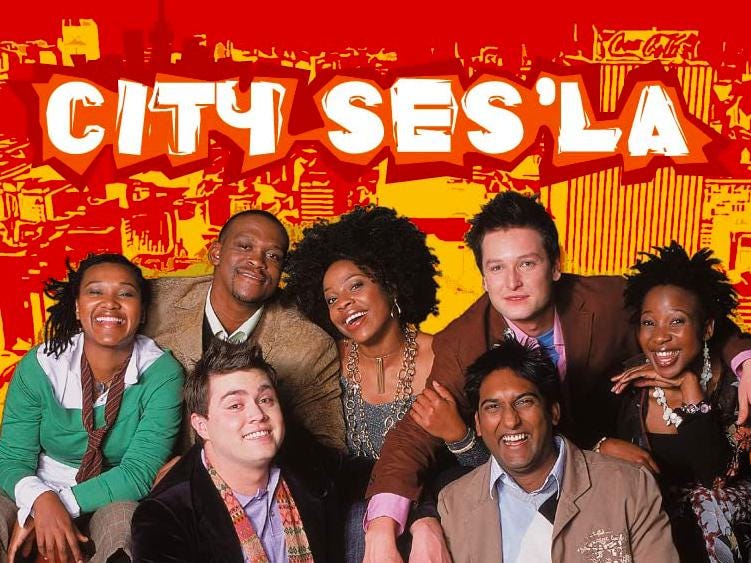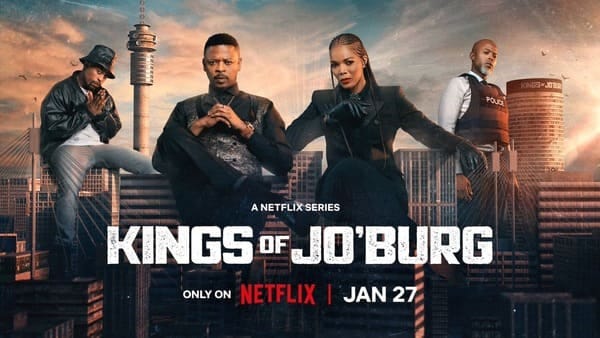Gangsters and witchcraft: isn't there more to local TV?
We're starved for laughter and romance, and it's getting weird.
Is local television in its flop era? One of the first lessons I learnt in high school drama class was, “art is not a mirror held up to reality but a hammer with which to shape it,” but Bertolt Brech said that in the early 20th century. He wasn’t around to see the crime syndicates, human trafficking rings, sugar babies and witchcraft storylines that have dominated South African television for the past two decades. It feels less like local television is shaping reality and rather smashing it to pieces.
The first feature-length film to come out of this country, African Jim (1949), features a classic Johannesburg mugging in the first few scenes but it also had jazz music, humour and a love story. Crime, poverty, and institutionalised greed are part and parcel of the South African experience and it would be foolish to expect that violence, mystery and the supernatural wouldn’t be included in our television. Plus, they do make for an entertaining watch.
It’s why American soap operas like The Bold and the Beautiful, Days of Our Lives, The Young and the Restless and Passions had remained huge draws for so many years. These campy productions made icons of scheming gold diggers like Brooke Logan, the menacing than Stefano Dimera who came back from death at least twice, and the witch Tabitha who placed the gates to hell in a poor girl’s bedroom wardrobe.
South Africa soap operas, in turn, have had their own tradition of nightmare fuel, inescapable villains, and conniving women you loved to hate. But while Generations, Isidingo and Backstage would give us the trophy wife sleeping with her stepson Dineo Tlaole,, these shows were also aspirational depictions of Black people in the New South Africa.
The setting of Generations was a Johannesburg advertising agency, where Karabo and Queen Moroka were modern, urban women climbing the corporate ladder, building their own homes, and looking for love. They also had amazing hair and clothes but that’s besides the point. The Black characters in this show might have dabbled in crime and magic-aided seduction but they were also just living and being and loving.
While more contemporary soapies like The Wife and The River also show us how Black characters navigate contemporary times, they’re not balanced by as many sitcoms, romantic comedies and alternative formats like earlier post-apartheid television. The ‘90s and 2000s had Suburban Bliss, The Coconuts, Stokvel and City Ses’la.
Suburban Bliss (1995), which lasted 104 episodes, followed the dynamic of a Black and a white family who’d recently moved to the suburbs. It was a clash of racial stereotypes, misunderstandings and creating new cliches. It was lighthearted, backed by a laugh-track, and took a humorous approach to the uneasy racial tension of this new world order.
The characters of Stokvel (2003) are concerned with money and their economic position, but it’s all for laughs as we follow the day-to-day minutia of a male and a female stokvel in Diepkloof, Soweto.
City Ses’la (2005) sits in a league of its own, as one of the few depictions of 20-somethings in Johannesburg. Amongst struggling to pay rent, battling it out with inconsiderate roommates, and finding their way in the world, the friends come to blows on things like lobola, racial stereotypes, and online dating.
If it was the supernatural you’d prefer, there was the race-swapping 2008 show The Coconuts where your typical middle-class white family are magically transformed into Black people and their Black domestic worker, Patience, becomes white. Even with the wacky set-up, it’s still a rather provocative insight into the unique idiosyncrasies of racism and race relations.
For more thoughtful narratives, there was Intersexions and Soul Buddyz. Either way, whether it was light-hearted comedy or a PSA on the HIV/AIDS crisis, there was variety to South African television. Recent projects like Blood & Water promised to be “Gossip Girl set in Cape Town” at the start but quickly devolved into human trafficking and police corruption within a season. Kings of Jo’burg having a mermaid doesn’t detract that it is yet another show about gangsters.
There is some hope over the rainbow, of course. 2022’s Blood Psalms is an African fantasy about fictional kingdoms facing the apocalypse. The Girl From St Agnes has dark subject matter but it’s also just girly things. And Tali’s #JoburgDiary is an indulgent romp about the worst women you’ve ever met.
There’s already so much pain and destruction when we look outside our windows, is it too much to ask that it’s not my TV too?







Hi Khensani, enjoyed reading this. What role do you think money (or lack of it) has played in this situation of finding mainstream shows catering to witchcraft or some of the other themes mentioned ?